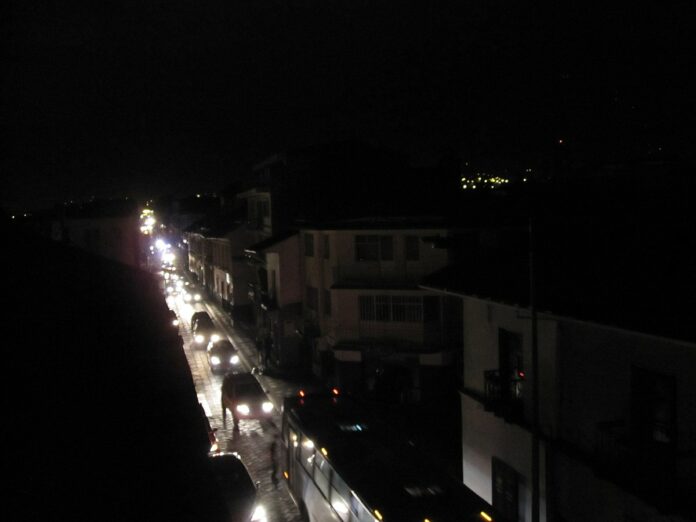MADRID, SPAIN – Millions across Spain and Portugal were plunged into darkness this afternoon as a massive and unprecedented power outage swept across the Iberian Peninsula. The blackout, which struck around 12:30 PM Central European Time (11:30 AM BST), has brought major cities to a standstill, disrupting transportation networks, knocking out telecommunications, and raising serious questions about the resilience of the European power grid.
The scale of the disruption is immense, affecting major urban centers including Madrid, Barcelona, Lisbon, Valencia, Seville, and Bilbao. Initial reports indicate that the outage has impacted everything from traffic lights and metro systems to internet connectivity and mobile phone networks, leaving millions stranded and incommunicado.
In Spain, the national railway operator Renfe confirmed a complete shutdown of train traffic across the country, with all departures halted and passengers left waiting on stationary trains. Madrid’s usually bustling Barajas International Airport also experienced a total power loss, leading to flight delays and cancellations. The city’s metro system was partially evacuated, and the mayor urged residents to minimize travel due to non-functioning traffic signals.
Neighboring Portugal has been similarly affected, with the Lisbon and Porto metro systems grinding to a halt and widespread traffic light failures causing significant congestion. Prime Minister Luís Montenegro convened an emergency cabinet meeting to address the crisis, stating that while the cause remained under investigation, there was “no indication” of a cyberattack.
“Rare Atmospheric Phenomenon” Eyed as Potential Cause
While the exact cause of the blackout remains officially undetermined, Portugal’s national electricity grid operator REN pointed towards a “rare atmospheric phenomenon” originating in Spain as a likely trigger. According to REN, extreme temperature variations in the Spanish interior caused “anomalous oscillations” in high-voltage power lines, leading to synchronization failures across the interconnected European network and ultimately the collapse of the Iberian grid.
However, Spanish Prime Minister Pedro Sánchez cautioned against speculation, stating that the government was investigating all possible causes and that there was “no conclusive information” yet. He thanked France and Morocco for their assistance in supplying energy to begin restoring power in the northern and southern regions of Spain.

Image source: Wikimedia Commons
Widespread Disruption and Economic Impact
The blackout’s impact extends far beyond transportation. Hospitals in both countries were forced to rely on backup generators, while businesses faced closures due to lack of power and the inability to process electronic payments. The Madrid Open tennis tournament was also disrupted, with matches suspended due to the power failure.
The economic consequences of such a widespread and prolonged outage are potentially significant, with businesses facing lost productivity and the disruption of supply chains. Analysts suggest that the total economic impact will depend on the duration of the blackout, with some reports suggesting that full restoration could take anywhere from several hours to potentially days.
Questions of Grid Vulnerability
The incident has inevitably raised concerns about the vulnerability of Europe’s interconnected power grid to unforeseen events, whether they be natural phenomena, technical failures, or even deliberate acts. While grid operators emphasize the robustness of the system and the rarity of such large-scale outages, the sheer scale of today’s blackout will undoubtedly lead to a thorough review of infrastructure and contingency planning.
As night falls across the Iberian Peninsula, millions remain without power, awaiting updates on when their electricity supply will be restored. The focus now is on the urgent task of bringing the grid back online and understanding the precise sequence of events that led to this unprecedented disruption. The incident serves as a stark reminder of the critical importance of a stable and resilient energy infrastructure in modern society.
